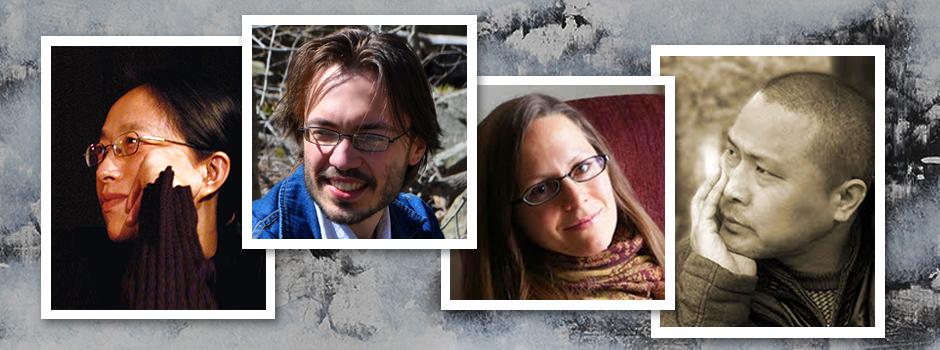Once again, NYU Shanghai had the opportunity to hear contemporary poets read their work, as poets Yang Jian and Wang Xiaoni read their powerfully emotional poetry in Chinese, accompanied by their English-language translators Austin Woerner and Eleanor Goodman, at Thursday night’s Literary Reading session.
“Having a life full of emotion leads to a life of happiness...even more so if we can put those emotions into words,” said Wang, one of the few women associated with the Misty Poets, a group of 20th century Chinese poets known for their deeply personal writing, which was characterized by critics as "obscure,” "misty,” or "hazy" in the wake of state-ordained Chinese socialist realism.
Wang, who worked seven years as a countryside laborer during the Cultural Revolution, writes poems filled with undertones of “human psyche and political influence.”
From connoting female sexuality with “unopened lotus flowers” to celebrating a sense of freedom with sunflower images, Wang’s subtlety brought deeper understanding to the beautiful intricacies of life often unnoticed.
Similarly, Yang, a practicing Buddhist, turned to poetry after thirteen years as a factory laborer. His poems resonated with grave simplicity, observing the dichotomy of the natural world in ecological and cultural transformation. “My mind is un-rippled, unbroken—” Woerner's translation of a Yang poem stated, expressing the juxtaposition of nature and rapid changes in China's landscape and culture in poems like “Painting of a Duck in Winter” and “Here.”
“I fear progress more than anything,” Yang told the audience. In addition to the bilingual reading, poet-translators Woerner and Goodman shed insight into individual writing and translating processes, and how the amalgamation of different voices transforms world experiences and viewpoints into literary art.
(Text by: Chelsea Polanco)


